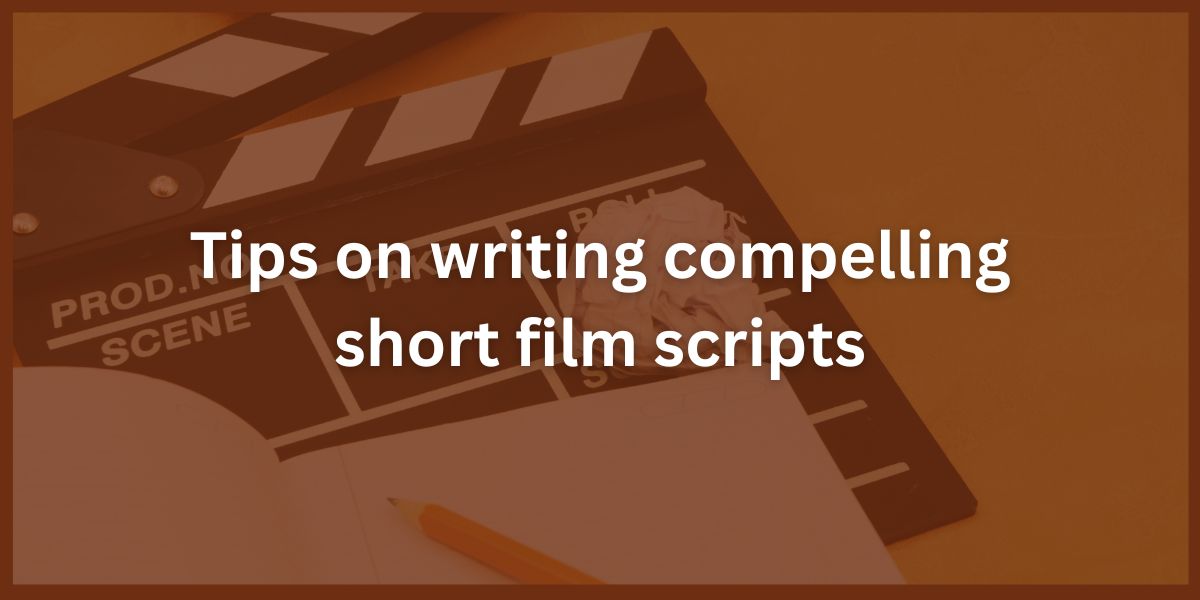Tips on writing compelling short film scripts
Let me start by saying that if you’re like me and you’ve only ever really consumed feature-length movies, don’t beat yourself up if writing short films doesn’t immediately come easily to you.
Unless you’re completely new to writing scripts of any length, there’s gonna be somewhat of a learning curve if moving from full-length screenplays to shorts.
As I know only too well how challenging that shift can be, I figured I’d share a few tips that helped me get the hang of it.
Before we start, I’ll just say this: writing a short film script isn’t so much about cutting things down as it is about thinking differently. You’ve got way less time to tell your story, so every word, scene, and line of dialogue has to pull its weight.
Start close to the middle – the action
Don’t waste time setting the stage. Jump right into the juicy part. If your film’s about a couple having a breakup, skip the “everything was perfect” lead-up. Start with the argument or the fallout.
People watching shorts don’t have the patience for slow pacing, so throw them into the thick of it. The backstory can come out naturally, or not at all.
Tell an actual story
Skip the artsy “slice-of-life” stuff where nothing really happens. A short film should have a clear beginning, middle, and end — even if it’s just a single moment that shifts everything for your character.
Give the audience something to latch onto. Make them feel like they’ve witnessed a complete narrative, no matter how small.
Don’t overdo the character development
In a feature, you’ve got time to show us someone’s whole journey. In a short, we just need to get the gist. Give us enough to understand the character’s motivations and let their actions do the heavy lifting.
A few strong details — a line, a reaction, or a choice — can tell us all we need to know about who they are.
Show, don’t tell
You’ve probably heard this one a gazillion times, but it bears repeating. You’ve got limited time, so don’t waste it on characters explaining themselves.
If someone’s scared, show them trembling or hesitating. If they’re angry, let them slam a door or throw something. Words are nice, but visuals stick.
Try to limit your locations
You’re working on a short, not a sprawling epic. Keep your locations minimal. One or two spots max will not only save you production headaches but also force you to focus on the story instead of bouncing around.
Plus, it keeps the audience grounded in your world without distraction.
You don’t need the 3-act structure
Short films don’t have to play by Hollywood’s rules. Forget about the whole setup-conflict-resolution routine if it feels forced.
Shorts work best when they’re lean and tight, so structure it however fits your story. Sometimes a single moment is enough.
Think of your film as a narrative joke
Not all shorts need a twist ending, but it helps if there’s a sense of payoff — like the punchline to a joke. The best shorts leave you with that “ah-ha!” moment at the end, where everything clicks.
It doesn’t have to be funny, but it should land in a way that feels satisfying.
Don’t take too long
Short films are, well, short. Although the story should take as long as it needs to be told, staying below 10 minutes should be your aim, unless you’ve got a killer concept that demands more time.
The shorter your film, the tighter and more impactful it’ll be. You want the audience to feel intrigued, not checking their watches!
Characters shouldn’t say things no one ever says
This one’s huge. Bad dialogue kills a script. If your characters are spouting lines that sound overly poetic or like they belong in an Oscar bait film, scrap them.
People talk casually, mess up, and sometimes say nothing at all. Read your dialogue out loud — if it sounds fake, rewrite it. Keep it real, like a conversation you’d overhear, not something that screams “scripted”.
I hope this has been useful to you. Good luck!





Leave a Reply